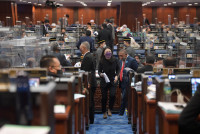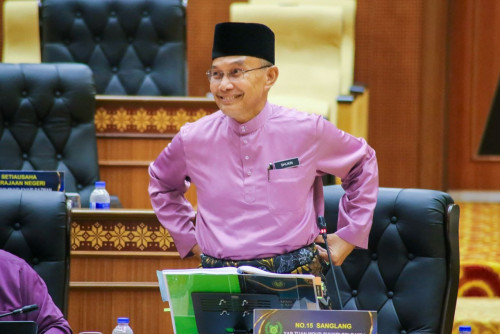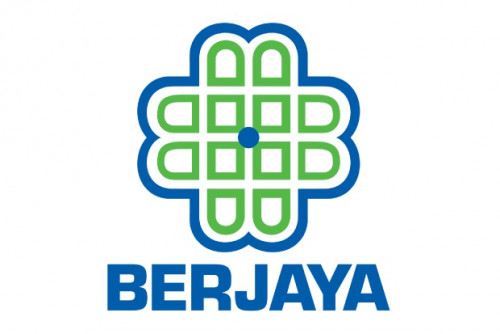KUALA LUMPUR – Putrajaya will continue to implement tax reform initiatives proposed by the Tax Reform Committee, which are focused on measures to broaden the tax base, including reviewing broad-based incentives, reliefs and deductions.
In its 2023 Pre-Budget Statement, the Finance Ministry noted that the tax administration would be further improved through comprehensive registration of taxpayers, better training of tax personnel and improved registration of cross-border trade.
The initiatives also include strengthening audits and investigations, as well as enhancing legal certainty for taxpayers.
Under Budget 2022, the estimated target for tax revenue collection is RM171.4 billion or 10.5% of gross domestic product, comprising RM127.3 billion in direct taxes and indirect taxes of RM44.1 billion.
As of April 2022, direct tax collection stood at RM45.6 billion or 35.8% of the target, while indirect tax collection was at RM17.3 billion or 39.4% of the target.
“Revenue collection up to April 2022 was higher than expected, and subsequent collection is expected to be better than the Budget 2022’s estimates, in line with the improving economic recovery and increasing business and leisure activities,” the ministry said.
Meanwhile, the ministry said to support the growth of the digital economy, the government intends to implement e-invoicing in stages to enhance the efficiency of the country’s tax administration management.
It said that e-invoicing would improve the quality of services, reduce compliance costs to taxpayers, as well as increase the efficiency of business operations.
It would also streamline and strengthen the national tax system, increase tax transparency and provide a more accurate assessment of compliance risk.
This is in line with the 12th Malaysia Plan, where the focus is on strengthening the digital services infrastructure and digitalising tax administration.
“This e-invoicing initiative will also support the use of tax identification numbers, which will be implemented in Malaysia starting this year as a measure to expand the income tax net,” said the ministry.
It added that Malaysia has always been responsive to current changes in the internationally agreed tax standards to ensure a competitive environment – which would subsequently attract foreign and domestic direct investments – as well as to prevent cross-border tax evasion activities.
It noted that as multinational enterprises depend heavily on digitalisation, existing tax policies need to be reviewed to prevent revenue leakage and profit shifting.
“In addressing these challenges, the government and the Organisation for Economic Co-operation and Development are currently discussing the implementation of taxation on the digital economy under the Base Erosion and Profit Shifting Action Plan.
“We agreed to implement the two-pillar approach which is expected to be implemented starting next year,” it added.
The ministry said Pillar 1 highlights the allocation of taxing rights, and seeks to review profit allocations and nexus rules to a country that was previously subject to the application of the concept of permanent establishment, either through domestic legislation or which has been agreed through a bilateral taxation agreement.
Meanwhile, Pillar 2 introduces a minimum effective tax rate at the global level of 15% to ensure a level playing field between countries in attracting foreign direct investments; aimed at preventing harmful tax planning that can lead to tax-base leakage and profit transfer to countries with low tax rates.
“The government is reviewing technical details of two pillars, including the possibility of introducing Qualified Domestic Minimum Top-up Tax under Pillar 2,” said the ministry. – Bernama, June 3, 2022




















